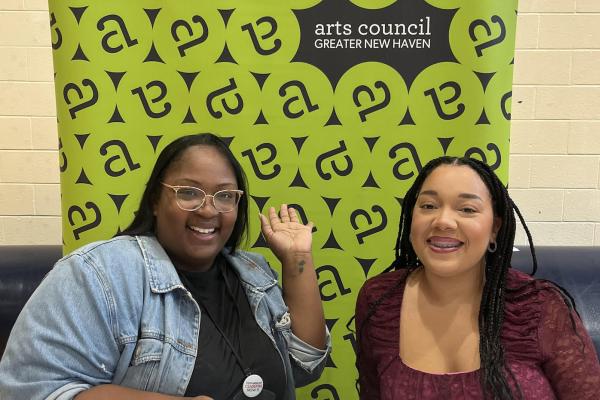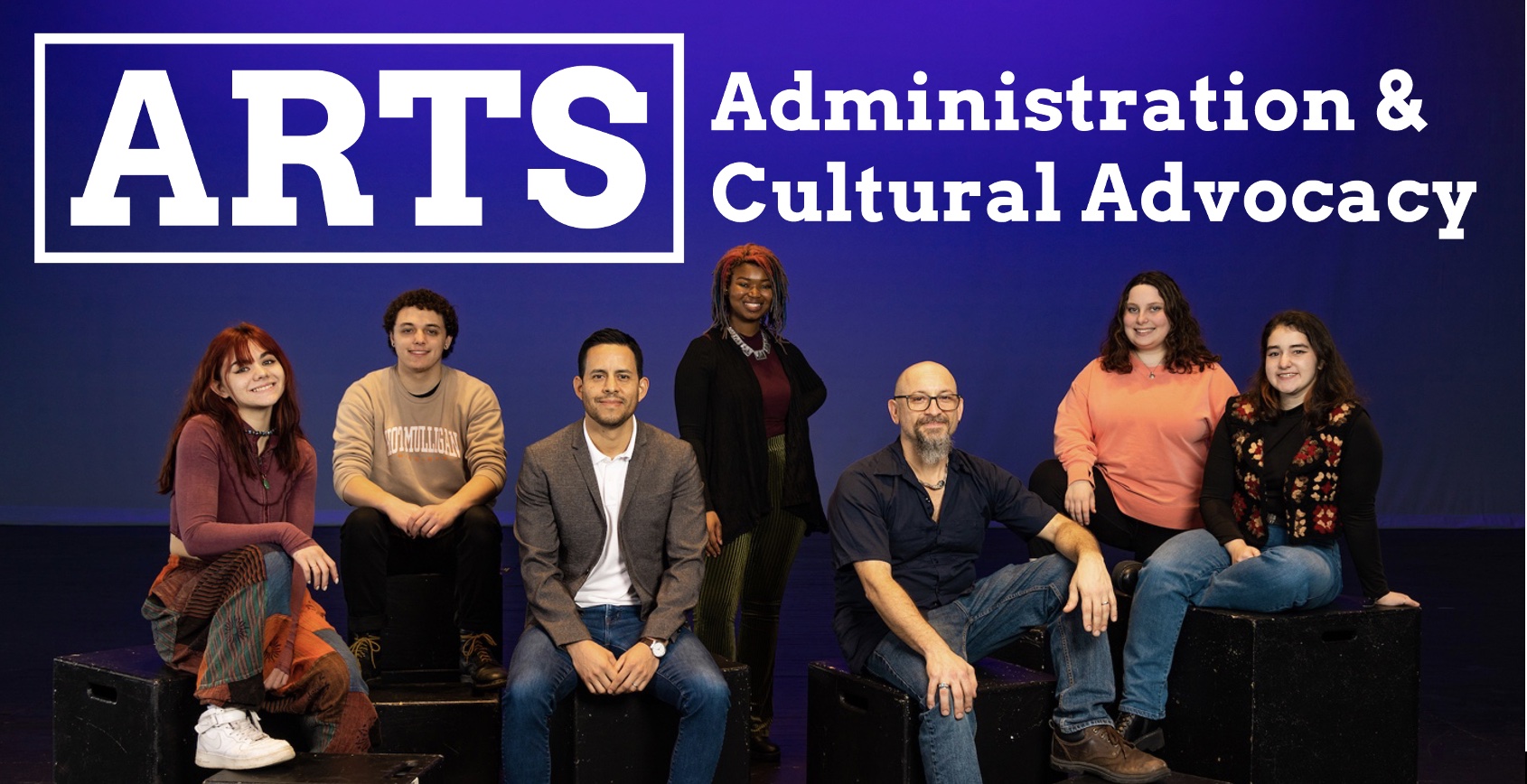
Studying the arts and humanities at Southern gives you the unique advantage of the cultural richness of New Haven, a city with some of the nation’s leading organizations in the visual and performing arts, cultural heritage and preservation, and the public humanities.
The minor in Arts Administration and Cultural Advocacy offers you an introduction to this professional world. It's particularly ideal for Art, English, History, Music, Theatre, and Interdisciplinary Studies majors. It's also a great way to add an arts-related focus to another professional discipline, like Business or Tourism and Recreation.
If you're a current minor or interested in declaring one, click through the sections below or contact one of the coordinators to set up an advising appointment:
Why Arts Administration and Cultural Advocacy?
Curriculum and Requirements
Combining with Your Major
Internships
Declaring the Minor
Contact
Why Arts Administration and Cultural Advocacy?
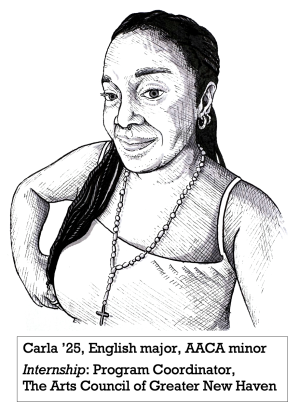
"Great opportunities, such as internships, have significantly developed my professionalism. I can be both the artist and the artist advocate." - Carla
Arts Administration and Cultural Advocacy is a 19-credit minor designed to be added to your major in order to introduce you to the fields of "arts administration" - the behind-the-scenes professional leadership of arts organizations - and "cultural advocacy," or the non-profit, civic, and enterpreneurial work of the cultural sector more broadly. This includes careers in:
• theatre and performing arts management
• libraries and museums
• non-profit cultural organizations
• grant-writing and development
• arts education
• and more ...
We know there's no single pathway into these fields. What matters is how you combine your major and your creative interests with the knowledge and practical tools needed to develop a meaningful voice in the professional world.
Curriculum and Requirements
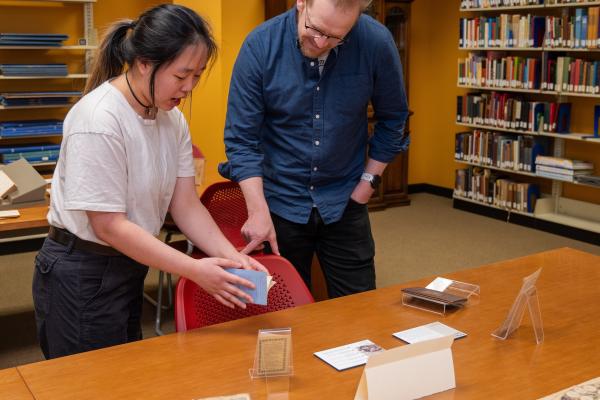
Unlike other minors or majors, the AACA curriculum is designed to help you discover where you want to go professionally and creatively. Here's how it works:
Step #1 - Get a Hands-On Introduction: AAC 200 (3 credits)
AAC 200 Topics in Arts Administration and Cultural Advocacy is a hands-on introductory course taught by rotating faculty from the creative sector – along with guest speakers and field trips – to take you "behind the scenes" of arts, culture, and non-profit organizations in New Haven. It culminates in a group public art or advocacy project.
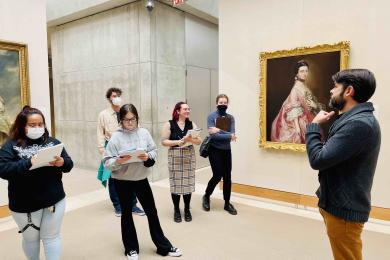
Step #2 - Develop Your Focus (12 credits)
At the end of AAC 200, you’ll meet with the instructor and the coordinator to discuss your emerging areas of interest. You’ll then choose an additional 12 credits of electives from two general area requirements.
Areas of Professional Focus (6 credits)
Take two professional skills courses in areas of cultural administration such as: development, grant writing, public and non-profit administation, arts marketing, theatre management, and entrepreneurship.
Knowledge of Artistic Practice (6 credits)
Take two additional courses in the arts, including one practical skills course in aesthetic production – graphic design, web writing, editing, digital humanities, electronic music, etc – and one additional elective outside your major to further your knowledge in Art, English, History, Music, or Theatre.
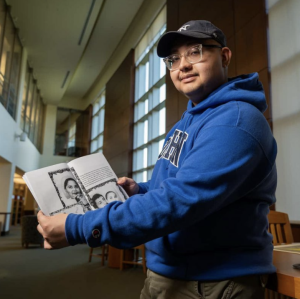
Step #3 - Complete Your Internship Capstone (4 credits)
AAC 497 Internship in Arts Administration and Cultural Advocacy is the capstone to the minor. You can complete the capstone through a single 4-credit internship or a combination of internships (3+1, 2+2, etc.), or by applying for an alternate 3-credit special project capstone (AAC 490) on an approved cultural advocacy project. Prereq: AAC 200 and approval of AAC coordinator.
Combining AACA with Your Major
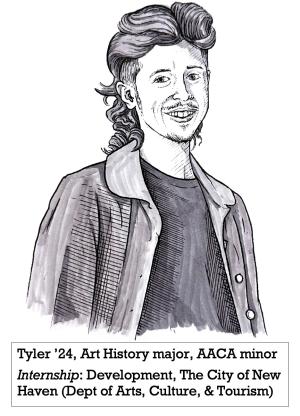
"I stumbled upon Arts Administration, as a term, just two years ago. This minor makes the field tangible, attainable. It's grounded in relationships, opportunity, and experience." - Tyler
Perhaps you’re an English or History major who’d like to work in a museum or library. Or a Music or Business major interested in helping run a dance school. Combining your major and the AACA minor works best when you plan ahead to develop a focused mix of both arts and cultural knowledge and professional experience needed for your interests.
The minor takes, on average, 2-3 years to finish. As there’s no set pathway, here are some sample timelines:
Sample Academic Map - AAC Minor and Visual or Performing Arts Major
2-year timeline | 3-year timeline
Sample Academic Map – AAC Minor and Humanities Major
2-year timeline | 3-year timeline
Given the importance of course selection, you should plan to arrange a personal advising appointment with one of the assigned minor coordinators - in addition to your primary academic advisor - each semester during your program of study.
Internships
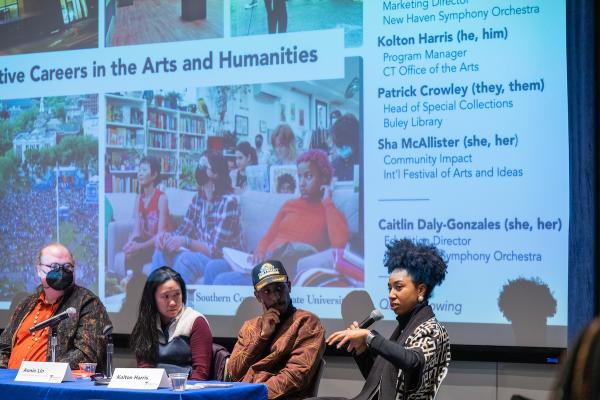
The core of the AACA minor is a paid 4-credit field internship at an arts and cultural organization, which you can take in any combination (4 credits, 3+1 credits, 2+2 credits, etc.) after you’ve finished AAC 200 and your professional courses.
You should begin planning for your internship capstone by the fall or spring of your junior year. Internships can be found through advising, personal research, or through one of our listed partnerships in New Haven. Take time to read through the AACA Internship Guide and AACA Internship Listing, which is updated annually:
Arts Administration and Cultural Advocacy Internship Guide
AACA Internship Listing (2024-2025)
Here are just some of the amazing partner organizations in New Haven and beyond where Southern AACA students have interned to date:
International Festival of Arts and Ideas | Elm Shakespeare | Long Wharf Theatre | New Haven Symphony Orchestra | Rochester Philharmonic Orchestra | Beinecke Rare Book and Manuscript Library | Buley Library (Special Collections) | Arts Council of Greater New Haven | Community Foundation for Greater Haven | The City of New Haven | Connectict Office of the Arts | Creative Arts Workshop | The Breed Entertainment | Woodhall Press
Declaring the Minor
